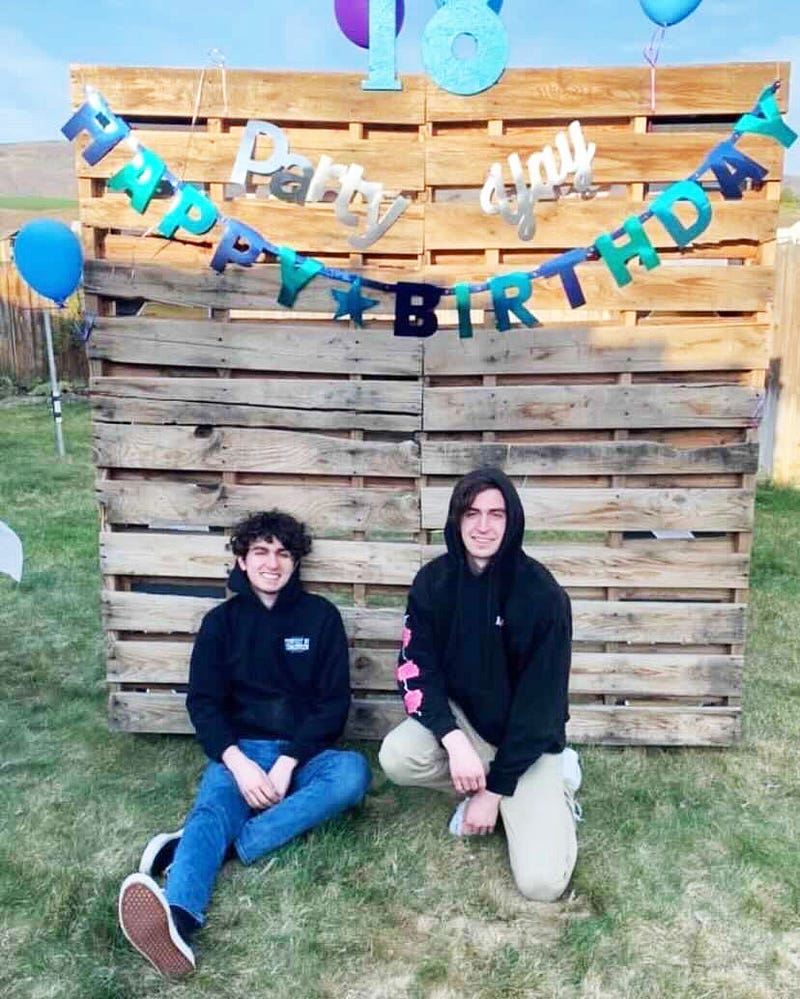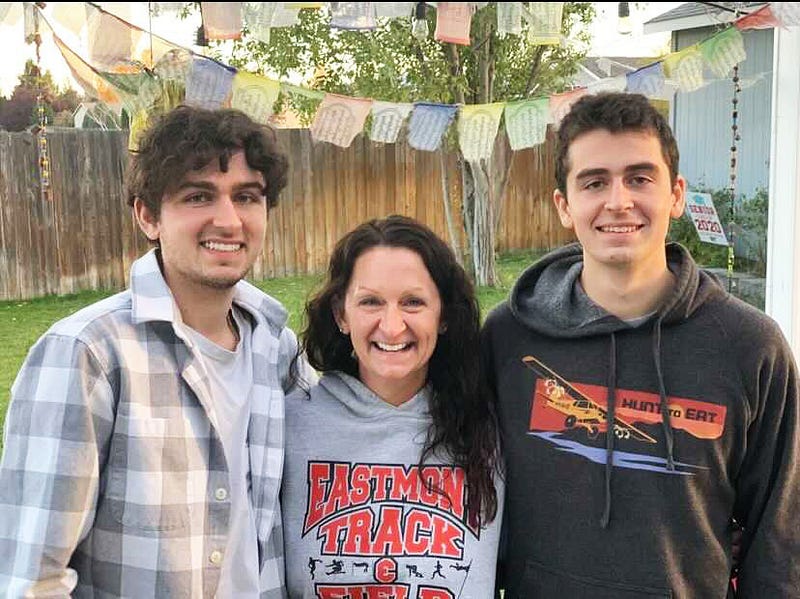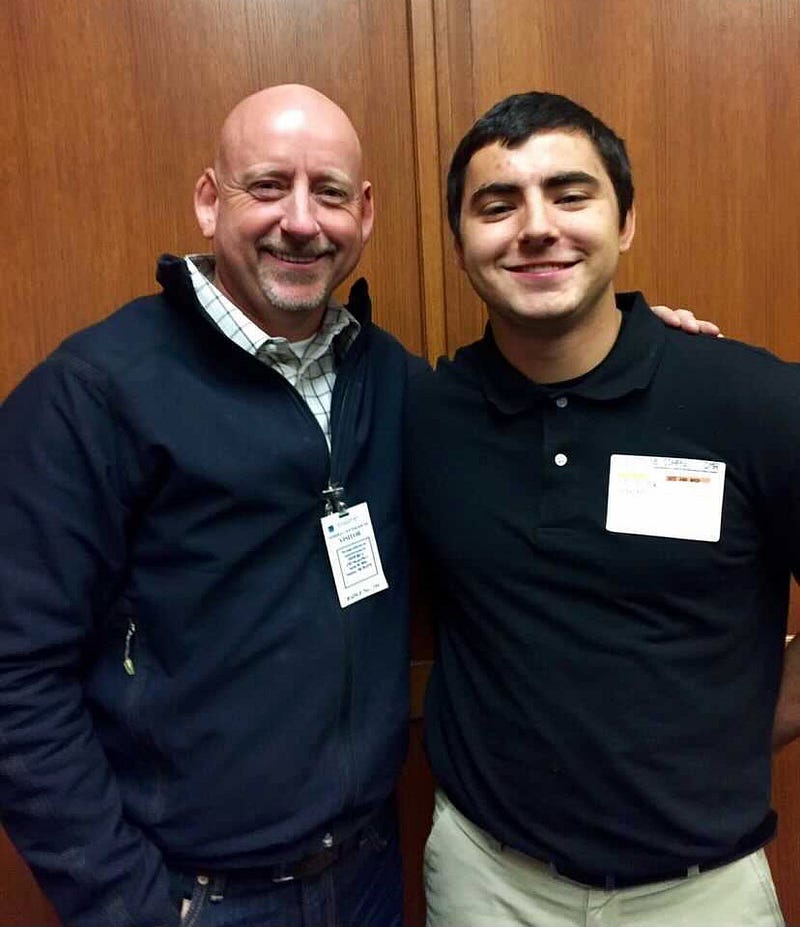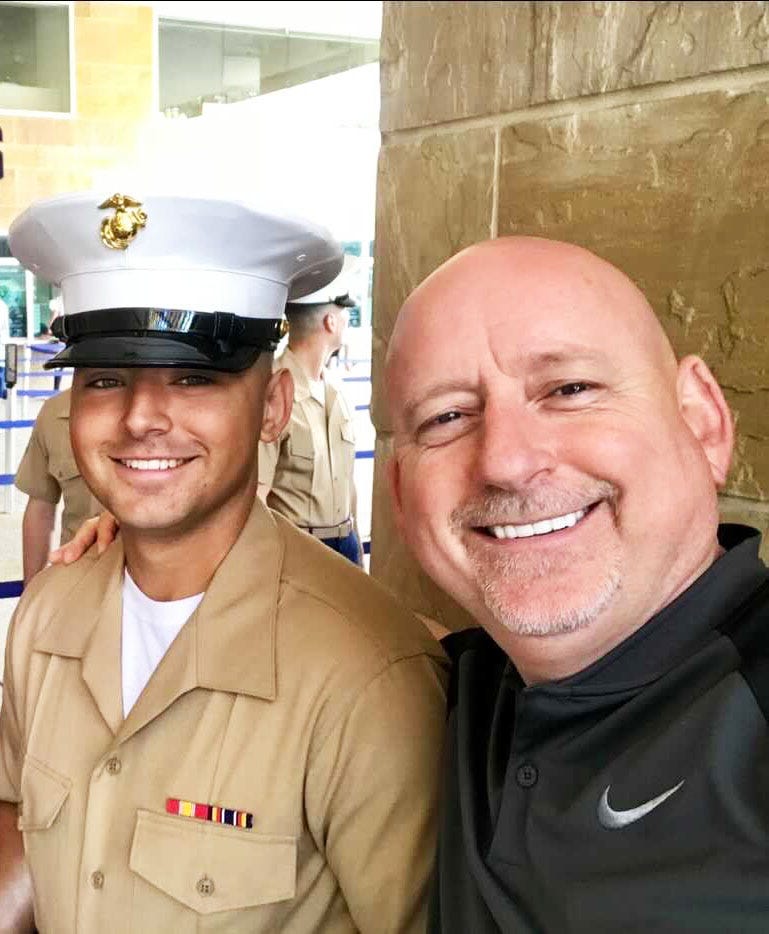Flying the Nest
How families are affected by a member leaving for the military.
Story by Riggs Mischke

“I love you brother, you can do this. We’ll talk soon OK?” I said as my brother and the other recruits loaded into a black van.
For families of active military members, there can be a lot of difficult emotions to cope with when a family member leaves for deployment or training. Feelings of worry, panic and the pressure of added responsibility can be overwhelming to say the least. But these feelings coincide with joy and a strong sense of pride because of their dedication and commitment to serving in the United States military.
Watching my younger brother Jake take those first steps into becoming a United States Marine was no different. He was taking the first steps into his future and we had to let him go. As I’m sure any military family feels when their recruit leaves for training, there is a mixture of emotions in the air.
We waved goodbye to him, even though we couldn’t see through those tinted glass windows.

As tough as that moment was, I was happy to watch my brother fulfill his dream as a Marine pilot. I am deeply proud of his commitment to protect and serve this country, just like our Dad and grandparents did. But I still worry about him, because he’s my little brother.
Now that it has been a few months since Jake went off to basic training, our family has had time to adjust. At first, we were all anxious and worried about him and what he could be going through. The emotions we felt are described by the military as symptoms of common stress reactions. People experience these emotions while their family member is on deployment or going through training, and they are especially common when long periods without contact occur.
For Russ McClellan and his family, these feelings weren’t any different.
Similar to my brother, McClellan’s son Mason enlisted with the United States Marine Corp when he was 19 years old after graduating from high school in Chelan, Washington. He ended up signing a five-year contract with them.

Although McClellan was extremely proud of his son, there were a lot of emotions that he struggled with while his son was gone.
“The one thing about the military is that when you get into that world, you have no communication, you have no control as a parent,” McClellan said. “That was a shock. You’re always there for your kid the first 18 years of their life, and then you just let them go. That was probably harder for me than it was on him.”
McClellan also felt that the long periods of time without talking to his son took a toll on him. He would go months without hearing from him, and then all of the sudden get a text or a random phone call. But what was most difficult was when he came home.
“He left when he was 19 and then came back when he was 24. I still thought of him as a kid, and it took a few months for me to adjust to that,” McClellan said. “He had gone away as a kid and come back as a man. He had all of this new perspective on the world that he didn’t have before.”
As time continues to pass and we don’t talk to my brother, I wonder if our situation will be similar to McClellan’s with his son. Will he be the same person or not? Or will he come back with a different perspective and attitude on life that we didn’t think he could have?

It seems like just yesterday, my brother was giving our mom and I a lecture on the history of each airplane, jet and rocket that was on display as we made our way through the hangers at the Museum of Flight. With each plane we passed, he explained the functionality of the plane, the types of engines they were built with, what wars they had been deployed in and hilariously, what his opinion was on each of them.
Quite the knowledge and opinion to have for a 12-year-old.
This wasn’t anything surprising to Mom and I. His interest in becoming a pilot and joining the military began years earlier, when he was too young to even comprehend what that meant.
As we sat on that bench outside, watching the jets prepare for takeoff, he looked up at me.
“I’m gonna fly one of those one day,” he said.
I didn’t think he really meant it at the time.
